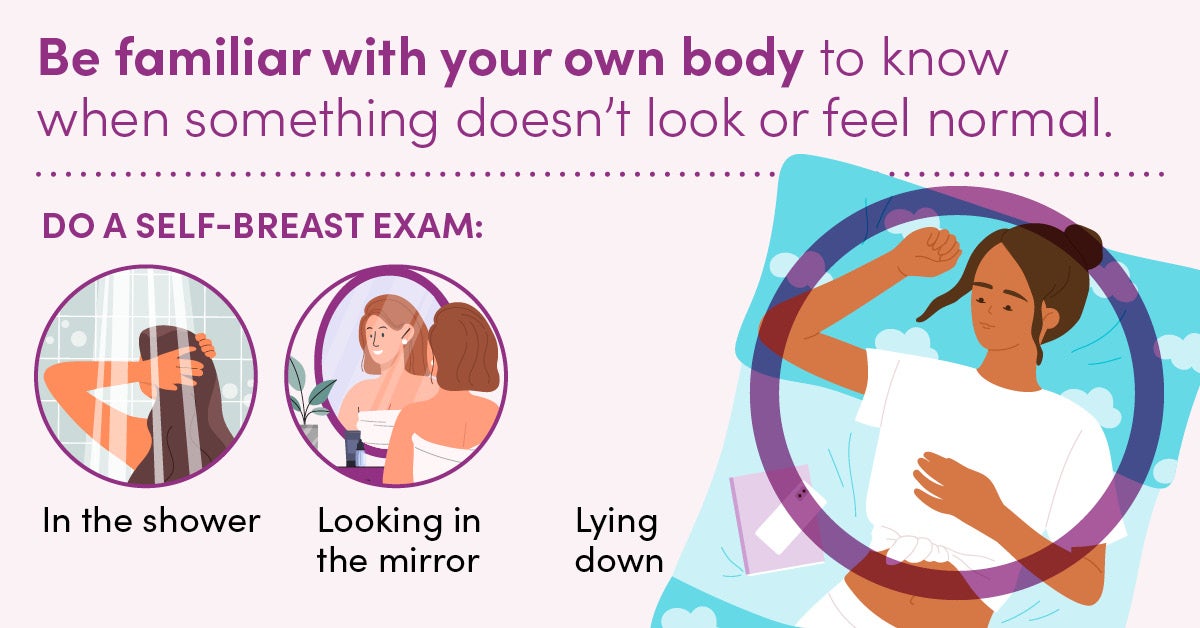
Overview: Being familiar with your own body lets you know for certain when something doesn’t look or feel normal. That's why self-breast exams are so important for your health; they give you the power to live a full life.
Wouldn’t you want to take any preventive measures to increase your chance of a full life? That’s why self-breast exams are so important. You have to be familiar with your own body to know when something doesn’t look or feel normal.
How to correctly check for breast lumps
Because breast tissue moves, examine your breasts once a month while doing different activities, like:
- Showering: Showers are an easy place to start when performing a self-breast exam. Apply pressure around your breast and in your armpits to feel for any lumps or unusual thickness.
- Looking at your reflection: Because you’re looking down, you may not see a rash, swelling, dimpling or other unusual markings without looking straight in a mirror. Look and feel around your breasts and nipples to notice any changes. To help, try putting your hands on your hips and flexing your chest to see if any alarming differences appear.
- Lying down somewhere comfortable: When you lie down, your breasts naturally move, which gives you another angle to look and feel for abnormalities. Grab a pillow, put it behind one of your shoulders, raise the arm that has the pillow behind it to go above your head, and with the opposite hand, feel your entire breast and armpit.
In addition to applying pressure around your breasts, make sure you gently apply pressure around your nipple and areola to see if discharge appears.
Do breast cancer lumps hurt?
While some can be painful, it’s more common for breast cancer lumps to be painless, which is why it’s so important for you to regularly examine yourself. You may not notice any changes if you aren’t looking for it.
It’s also important to remember not every lump you feel is cancer; benign breast cysts can be what you’re feeling. To make sure it’s not cancerous, get examined.
If at any time during your self-breast exams you have a concern, contact your primary care provider immediately by calling or contacting them through MyChart. Learn more about MercyOne cancer care.
This blog was medically reviewed by a MercyOne provider.
